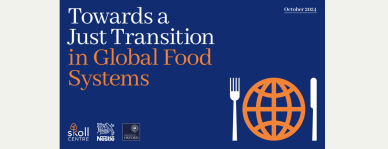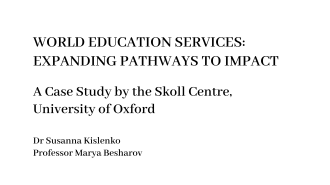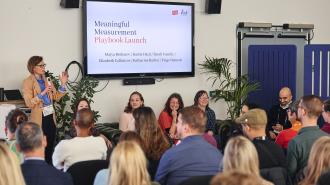New Report: Navigating a Just Transition in Global Food Systems
Global food demand is projected to increase by more than 50% between 2010 and 2050. Meanwhile, rising global temperatures and more frequent extreme weather events are placing immense pressure on food production and crop yields. At the heart of this challenge are 570 million smallholder farmers, who feed one-third of the world’s population but remain vulnerable to the adverse impacts of climate change.
In response to these challenges, the Skoll Centre for Social Entrepreneurship and the Oxford Martin School, supported by Nestlé, have published a new report, Towards a Just Transition in Global Food Systems, sharing insights from a January 2024 convening. This event brought together over 80 expert participants from across the private, public, and social sectors to explore how to scale a just transition in global food systems.

Key Insights from the Report
The report addresses major dilemmas facing global food systems, such as how businesses can balance sustainability and human rights with profitability, and how technological innovations can benefit the environment without creating job losses. These tensions pose significant challenges, especially for global businesses striving to deliver financial returns while contributing to sustainability efforts.
The report identifies key strategies for addressing these challenges, including:
- Catalysing Multi-Stakeholder Collaboration
Effective solutions will require collaboration across sectors, even when stakeholders' interests and priorities may not be fully aligned. - Realigning Incentives and Shifting Resources
Encouraging collaboration will require realigning incentives and unlocking resources currently tied up in supporting unsustainable practices. - Developing New Narratives
Engaging all stakeholders, particularly smallholder farmers, will depend on reframing key terms and crafting inclusive narratives. - Adopting a ‘Both/And’ Mindset
Changing how you think about the just transition challenge can be a powerful starting point. By adopting a ‘both/and’ mindset, business leaders are more likely to seek (and find) integrative solutions that balance profit and purpose, short- and long-term goals, and immediate action with thoughtful analysis of long-term implications. - Experimenting, Learning, and Adapting
To navigate the complexities of food system transformation, businesses will benefit from cultivating a culture of experimentation, learning, and adaptation.
Leveraging Systems Thinking
Marya Besharov, Professor of Organisations and Impact at Saïd Business School, University of Oxford, and Skoll Centre Academic Director, said: "The challenges facing people and the planet have become more urgent, complex, and interconnected—nowhere is this more evident than in the global food system. Insights from this report make it clear that we must leverage systems thinking as a crucial tool for understanding the current state of food systems and for envisioning alternative futures that are both just and sustainable. And the convening underscored the importance of bringing together diverse voices and experiences, bridging theory with practice, purpose with profit, and local with global perspectives."
To explore the detailed strategies and recommendations, you can read the full report here: [Read the full report]




